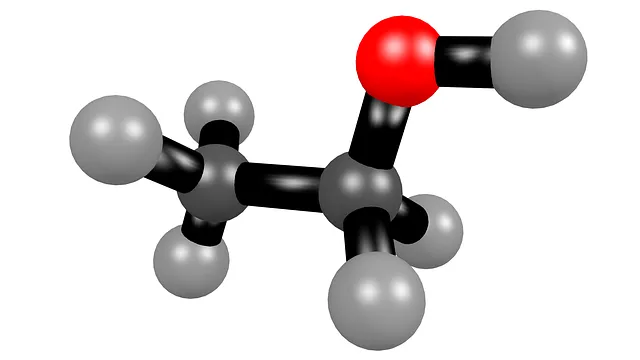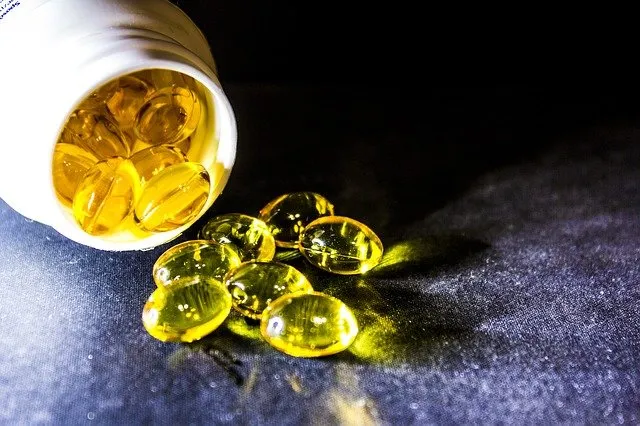A hangover— we have all heard about it; most people have experienced it...and usually more than once! Even if you don’t consume alcohol, you can’t hide from it because Hollywood brought it to the big screens.

Let’s face it—it’s a nasty feeling. However, what is going on in the human body to experience this disaster?
"The Doc" will try to break down the important elements below!
The Physiology of the Hangover

What causes the terrible symptoms of nausea, headaches, muscle weakness, cloudy thinking, and other GI disturbances?
I will begin by stating that there is NOT one cause. There are many problems that occur the morning after having (let’s say) too much fun with ethanol.
Build up of Acetaldehyde
In my opinion, this is probably the main culprit.
Don’t worry—I won’t go deep into chemistry here!

Picture of Ethanol. Link
Essentially ethanol when consumed is metabolized by acetaldehyde dehydrogenase (ALDH) in the liver, which results in a build-up of acetaldehyde. When the quantity of acetaldehyde is not too high, ALDH can further break-down this to acetate (1).
However, it may take 24 hours for this to occur after consuming large quantities of ethanol.
Simple Terminology: The liver can usually deal with small amounts of ethanol (alcohol) consumption. However, when one drinks too much ethanol, the ALDH in the liver cannot function well enough to metabolize the acetaldehyde, and its toxic effects can be felt for around 24 hours.
Some side notes: It is known that asians have more problems breaking down acetaldehyde, which can lead them to have more of a “hangover” feeling (1).
Another interesting point is the drug, disulfiram, which is used to combat alcoholism by giving one the "hangover" feeling while drinking ethanol.
Why you may ask? Simple—I already taught you all you need to know. Disulfiram inhibits ALDH so more acetaldehyde builds-up.
So this is why I hypothesize that while there are other causes of the “hangover,” the build-up of acetaldehyde is the number one reason.
A counter-argument can be found in a 2010 study that found that the level of acetaldehyde did not correlate with the severity of symptoms (2). People’s experiences of feeling will always differ, and that is why I don’t agree with this conclusion. In addition, finding that asians as well as people who ingest drugs that lead to a greater build-up of acetaldehyde, help support my conclusions.
How Does Acetaldehyde Cause These Symptoms?

Warning: This part may get boring for people not into science!
Great question! Since people experience symptoms differently, it is hard to be conclusive. Acetaldehyde activates the sympathetic nervous system and also causes vasodilation as in facial blushing (3).
While I was unable to find much on how it causes headache and nausea, the vagus nerve (parasympathetic) has been shown to be responsible for these symptoms. My theory would be that acetaldehyde “throws-off” the balance between the parasympathetic/sympathetic systems, resulting in these common symptoms.
Furthermore, other studies have found that during alcohol consumption, acetaldehyde activates opioid receptors (1). So while people may hate the feeling of acetaldehyde the next morning, acetaldehyde may be the reason people choose to keep drinking “in the moment!”
Simple Terminology: Acetaldehyde is a toxin that leads to the activation of the “flight or flight” response, which for one reason or another, leads to the common symptoms present in a “hangover.” The interesting thing is this same toxic compound could be the reason people choose to keep drinking due to activation of opioid receptors in the brain! A love and hate relationship for sure!
Other Causes of “The Hangover”

There are many more theories and explanations, but I will only cover a few more
—Cytokines and Prostaglandins
In 2003, a study showed an increase of cytokines and prostaglandins after alcohol consumption (2). Cytokines and prostaglandins lead to an inflammatory response in the body... and just makes one feel bad. This is why many people probably take NSAIDS like naproxen after drinking. Don’t do this! While these drugs will decrease the inflammatory response, it is very hard on the stomach and kidney after drinking. For more on this check out my post on NSAIDS and kidney injury here.
—Dehydration/Electrolyte Imbalance:
Simply put, alcohol is a diuretic. The more you drink, the more you urinate. If one does not drink a lot of water while drinking, they will be very dehydrated the next day. This will further lead to an activation of the sympathetic nervous system (an example would be an increased heart rate).
Everyone knows that you don’t feel as well when dehydrated, and this may add to the symptoms. Dehydration also leads to bad headaches because of the release of anti-diuretic hormone (ADH). ADH is released when dehydrated, which essentially allows the kidneys to reabsorb more water. The systemic organs/circulation will essentially “grab” more water from the brain leading to a temporary decrease in brain volume. This decrease often causes pain signals within the brain itself (1).
Since we also lose lots of electrolytes when urinating, often a person’s electrolytes like potassium are much lower after a big night of drinking. This can easily lead to symptoms of fatigue and muscle cramps.
—The Color of the Drink
I bet a lot of people wondered about this one. The percentage of alcohol increases hangovers (obviously), but how about the color? For instance, vodka or bourbon?
A study done at Brown University found that vodka drinkers experienced less hangovers than bourbon drinkers (4). Darker colored alcohol has more toxins and generally leads to more acetaldehyde build up!
What is the Cure for A Hangover?
That is the million dollar question! There are many supplement companies that say they have the “cure” but none have shown much promise in actual studies. From looking clearly at a physiologic perspective, staying very well hydrated while drinking will decrease some of that pain the next day. Drinking sports drinks might be a better option because they will replenish electrolytes as well! However, acetaldehyde build-up will still occur, and hence, not a cure for the hangover. NSAIDS may decrease the inflammation aspect of the hangover, but that is NOT a healthy choice. Just don’t do it!
If there was some medication that could increase the metabolism of acetaldehyde (not sure if this has been tried) then I would hypothesize it would help a lot.
Time is the best cure at the moment…..or not drinking (haha).
I hope you enjoyed the article, and I start my first job as a resident physician on Monday!
Feel free to follow me for more posts on music/health/science/travel!

Sources:
1)https://www.scribd.com/document/195251362/Physiology-of-Hangover
2) http://www.clinicalcorrelations.org/?p=4395
3)https://www.ncbi.nlm.nih.gov/pubmed/22455355
4) https://www.wired.com/2009/12/dark-liquor-makes-for-worse-hangovers/
Images:
All are public domain on pixabay.com and links are provided below image.
Edits:
Minor grammatical changes.
I also changed the example of metronidazole (which is "classically" known to cause a disulfiram-like reaction to an example of disulfiram itself). Studies have not conclusively shown an increase in acetaldehyde with its use. However, nausea and vomiting occurs in some patients with its use, which can increase the "hangover" feeling. There are other drugs with disulfiram-like reactions as well.

